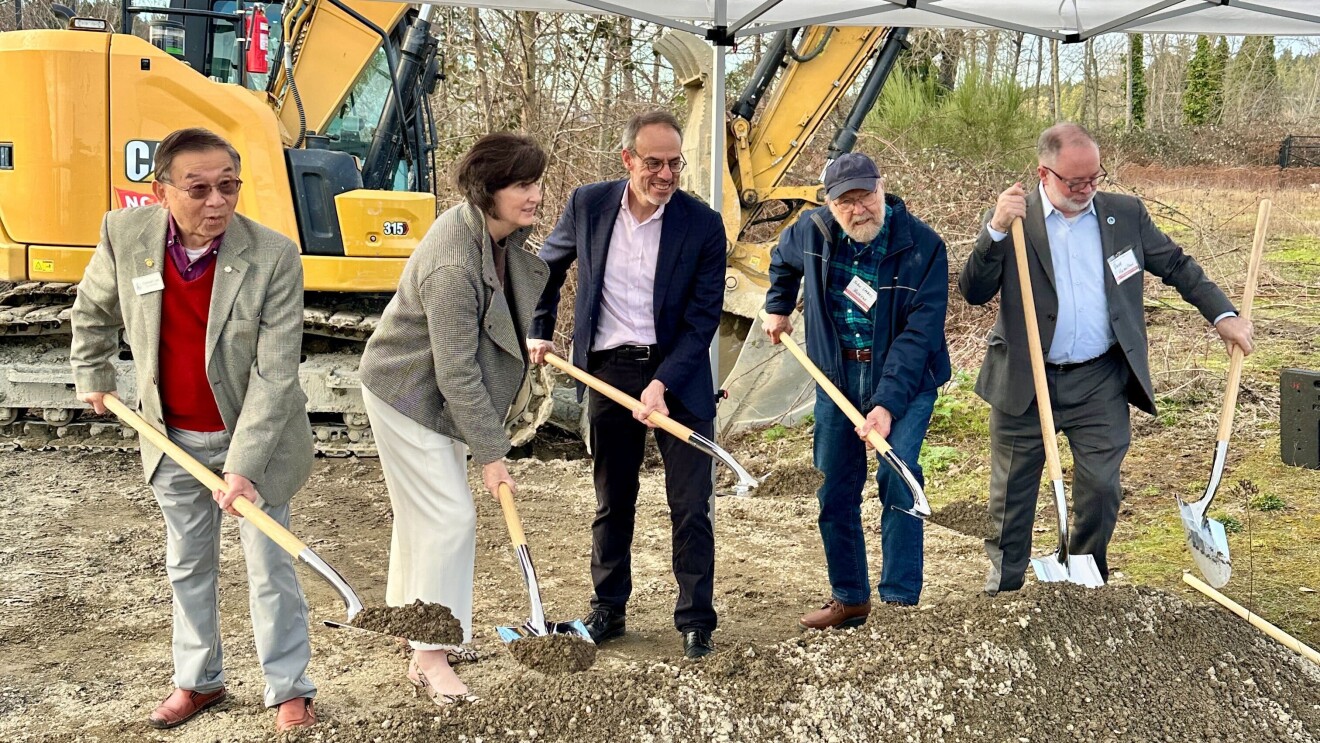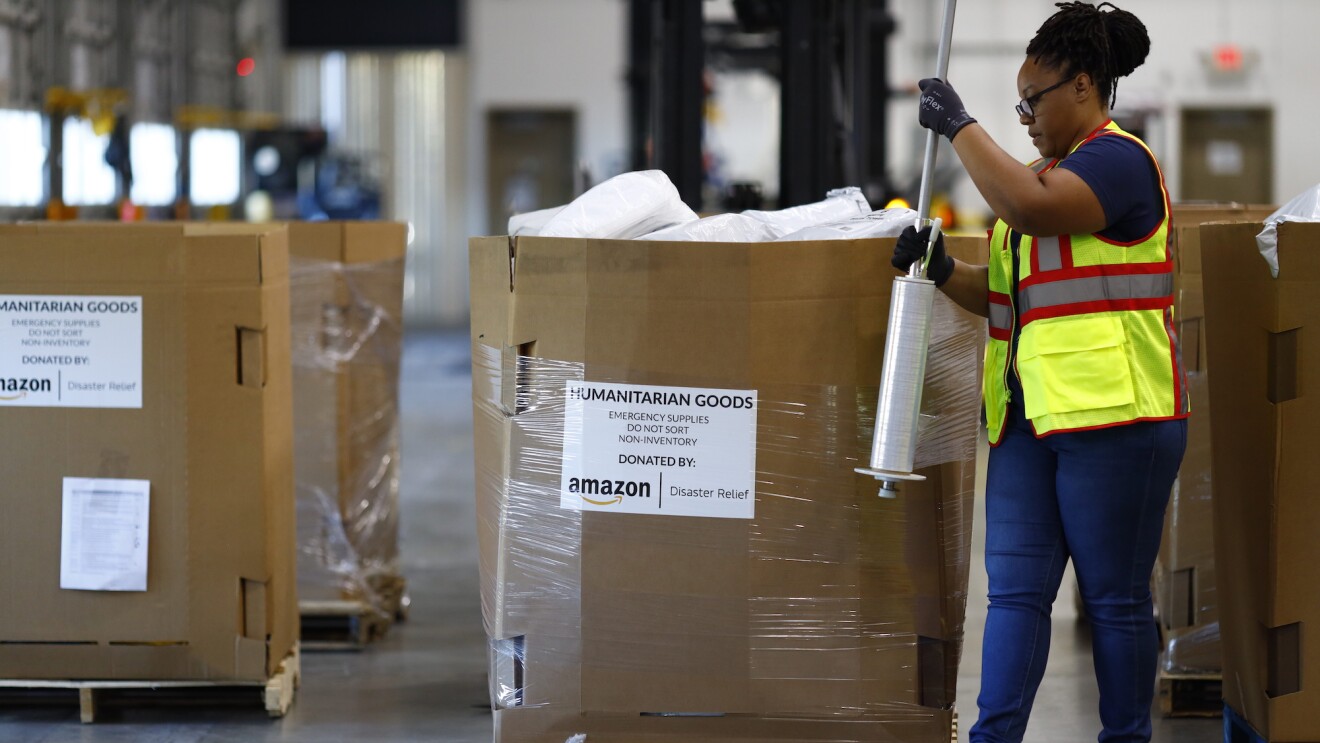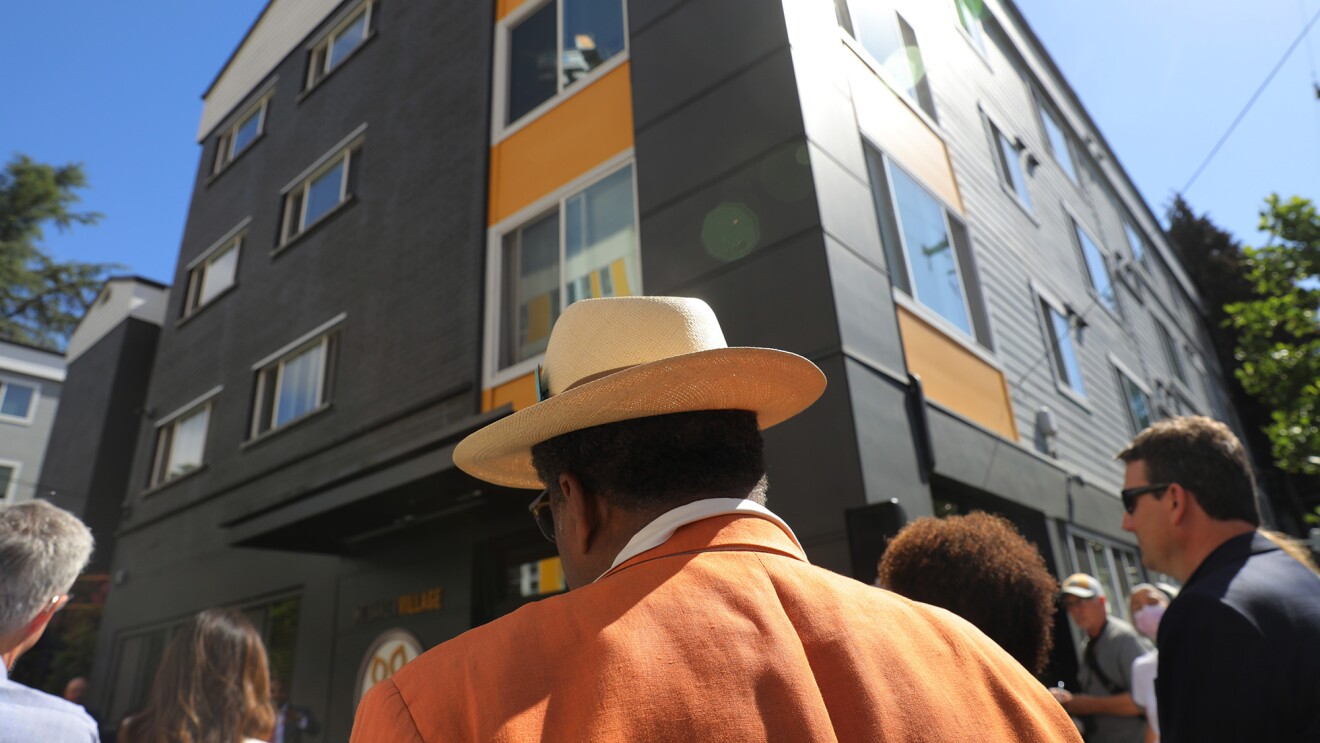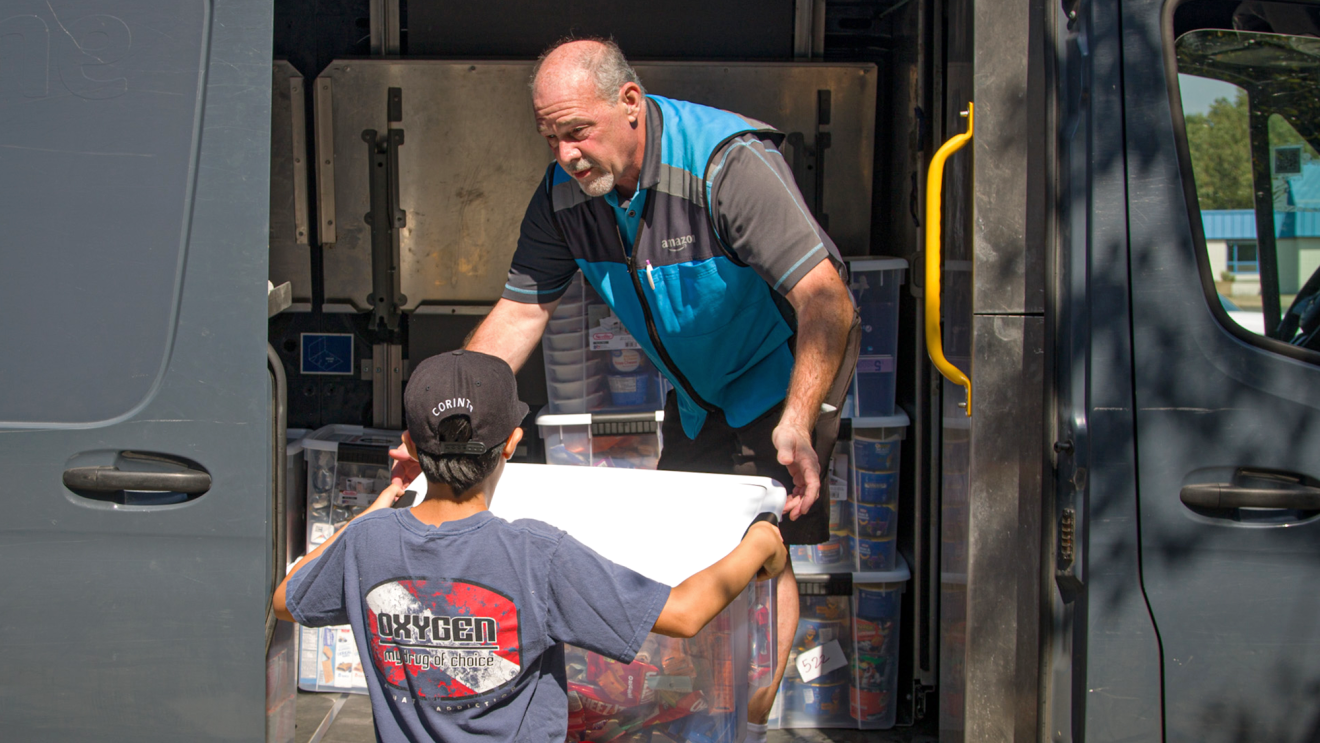Key findings from a new Gallup survey confirm that a majority of students across the U.S. are interested in computer science, but many lack access to such classes in their schools and general exposure to the tech sector. The study also reveals that students who strongly agree they have computer science role models are 10 times more likely to say they will pursue a computer science career than students who strongly disagree.
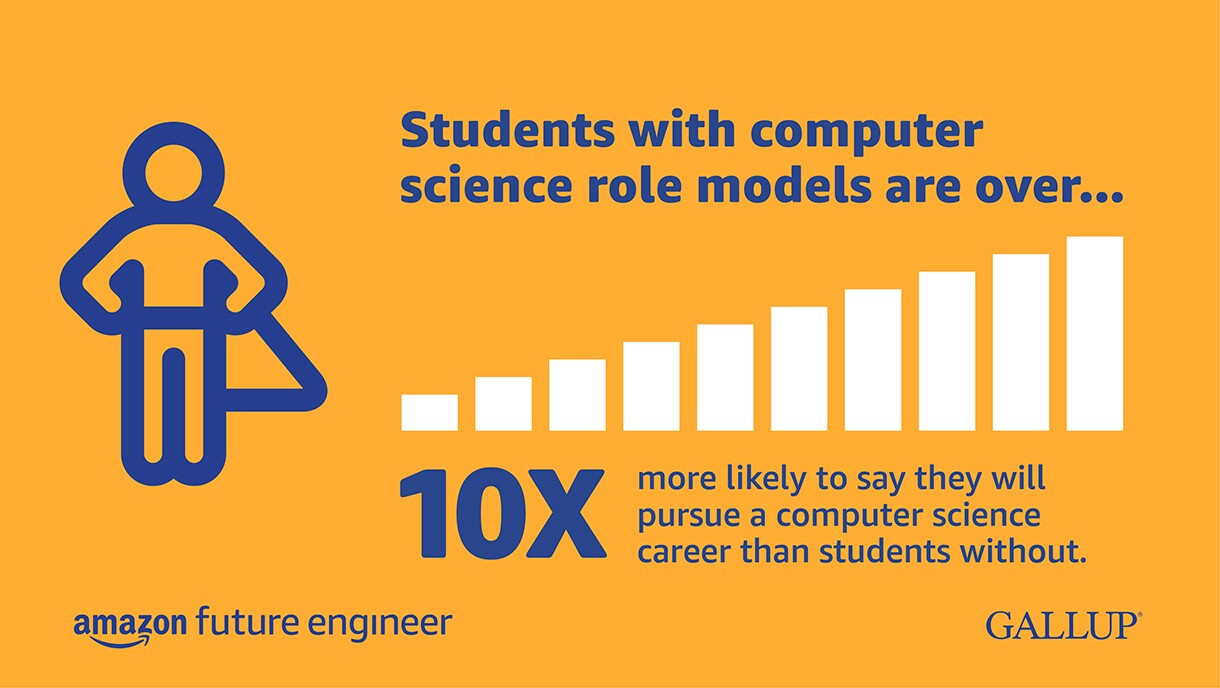
This gap between interest and access represents a missed opportunity for the nation’s economy, especially as U.S. employers increasingly seek job candidates with skills or a background in computer science. According to the Bureau of Labor and Statistics, the median annual wage for computer and information technology occupations is more than twice the median annual wage for all other occupations. That’s why broad access to these computer science resources could make a huge impact in the lives and economic mobility of countless students and families.
Through Amazon Future Engineer, our global philanthropic computer science education program, we aim to bridge the divide between interested students and computer science courses and opportunities. Our newest Amazon Future Engineer initiative, “Meet an Amazonian,” brings real-world people, technology, and careers into classrooms. The initiative consists of Class Chats, whereby Amazon volunteers serve as class speakers to help illuminate the vast array of careers available within the tech sector—from software development to marketing, and Fulfillment Center Tours, which are one-hour, computer science-themed versions of our traditional FC tours and show students what happens behind the scenes after an order is placed on Amazon.com. Both connect students with a diverse group of role models that help bring the tech industry to life.
Meet an Amazonian, which is available virtually to reach students where they are, was created in response to educators’ requests to “help students understand career possibilities at a place like Amazon and conceptualize their journey in the industry.” Initially rolled out in April for any educator who registered on AmazonFutureEngineer.com, Meet and Amazonian has already reached more than 140,000 students from nearly 2,000 U.S. Title I eligible schools—schools with a high percentage of students from families who need financial assistance—and engaged hundreds of Amazon employee volunteers. The initiative will expand to reach 3,000 U.S. Title I schools by the end of this year.
“Computer science skills are among the most sought-after in the U.S. job market, no matter what career students choose to pursue,” said Victor Reinoso, the global director of Amazon Future Engineer. “Our Meet an Amazonian experiences underscore our continued commitment, this academic year and beyond, to support teachers and help students from underserved communities secure access to the resources and skills needed to build their best futures.”
Meet an Amazonian is only Amazon Future Engineer’s latest addition to their childhood-to-career education program, which helps students explore computer science through school curriculum and project-based learning, using code to make music, program robots, and solve problems, and offers teachers professional development opportunities. Amazon Future Engineer also awards 100 students each year with four-year, $40,000 scholarships and paid internships at Amazon. They also honor 10 Teachers of the Year, giving each award winner more than $30,000 for themselves and their schools.
Encouraging next gen talent
Students like 2020 Amazon Future Engineer scholarship and internship awardee Jessica Bradley can attest to the benefits of our computer science education program. The Hoover, Alabama native is in her third year at the Georgia Institute of Technology, but Bradley’s path toward a computer science career has at times been a struggle. In classes mostly filled with men in a highly competitive learning environment, Bradley considered either transferring schools or changing her major.
But thanks to her Amazon Future Engineer scholarship, Bradley knew she had a great internship ahead and kept driving forward; the job security allowed her to focus on school and get involved on campus as a tour guide for prospective students. She credits her post-freshman year summer internship at Amazon with building her confidence and helping her solidify her career goals.
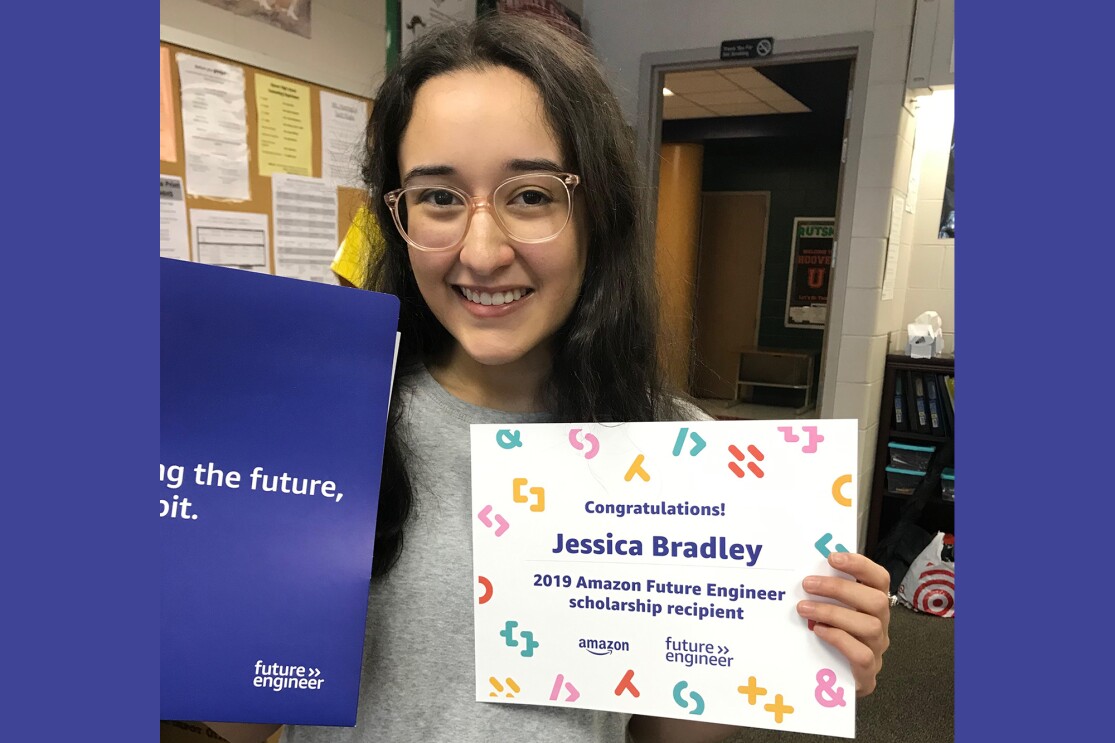 Jessica Bradley, 2020 Amazon Future Engineer scholarship and internship awardee
Jessica Bradley, 2020 Amazon Future Engineer scholarship and internship awardee“Without the mentorship I received and the positive experience I had with my team, I probably would have taken a different career path,” Bradley said. “I didn’t gain that sense of belonging and confidence until I worked with my mentor and team manager. It would have gone a lot differently if I didn’t have that support.”
Bradley has continued to excel. She is now teaching a college-level introduction to computer science class with 50 students and is passionate about mentorship and leadership.
01 / 04
Understanding student interest and engagement
Amazon Future Engineer recently commissioned a research report with Gallup to assess student interest and engagement in the computer science industry. The just-published study provides a recent and more thorough snapshot of how race, gender, location, and socioeconomic status factor into students’ access to and interest in computer science education.
The new report—Developing Careers of the Future: A Study of Student Access to, and Interest in, Computer Science—reveals that access to learning opportunities and role models are highly correlated with students’ persistence on their career journey. Students with access to school-based computer science classes are more than twice as likely to say they plan to study the topic in college and that they aspire to have a job in the field. Further, students who confirm they have computer science role models are over 10 times more likely to say they will pursue a computer science career than students without.
The study, which surveyed U.S. students in 5th through 12th grade, also uncovers that middle school and high school students overwhelmingly recognize the value of computer science knowledge in the U.S. economy. More than nine in 10 agree that computer science can be used in many different types of jobs, that computer scientists help people, and that computer scientists get to help solve important problems.
“We were thrilled to partner with Amazon on this student survey. The Amazon Future Engineer-Gallup Student Survey offers new insights to educators and employers seeking to equip students from all backgrounds with the tools they will need to succeed in higher education and to obtain jobs of the future,” said Stephanie Marken, the executive director for education research at Gallup. “The research also helps programs like Amazon Future Engineer assess the state of computer science education and offer solutions that provide more equitable outcomes for students and their families.”
The research also notes that increasing both access to computer science learning opportunities and social connections among students can help positively impact outcomes for up-and-coming talent. These findings underscore how efforts like our Meet an Amazonian program connect students with role models who serve both as a mirror for students to see themselves and their future, and as a window into the industry that could inspire future talent to pursue a computer science career.
“I enrolled my class in Amazon Future Engineer’s Fulfillment Center Tour to expose my students to real-world, high-demand jobs of the future,” said Javier Aguilar, the technology applications / computer science teacher and robotics coach at East Fort Worth Montessori Academy. “Some of my students still have this misconception that computer science, robotics, or STEM is only for boys. I try to empower more girls to embrace and learn computer science because when they do this, they love it! And I really want to thank Amazon for continuing to support communities, students, and teachers.
“I enrolled my class in Amazon Future Engineer’s Fulfillment Center Tour to expose my students to real-world, high-demand jobs of the future,” said Javier Aguilar, the technology applications / computer science teacher and robotics coach at East Fort Worth Montessori Academy. “Some of my students still have this misconception that computer science, robotics, or STEM is only for boys. I try to empower more girls to embrace and learn computer science because when they do this, they love it! And I really want to thank Amazon for continuing to support communities, students, and teachers.
For 2021, Amazon has a goal to reach 1.6 million students from historically underrepresented communities globally through Amazon Future Engineer with real world-inspired virtual and hands-on computer science project learning. The program is currently available in the U.S., the UK, France, Canada and India.
Visit the Amazon Future Engineer site for information about how to register for virtual Fulfillment Center Tours and Class Chats.
Trending news and stories







